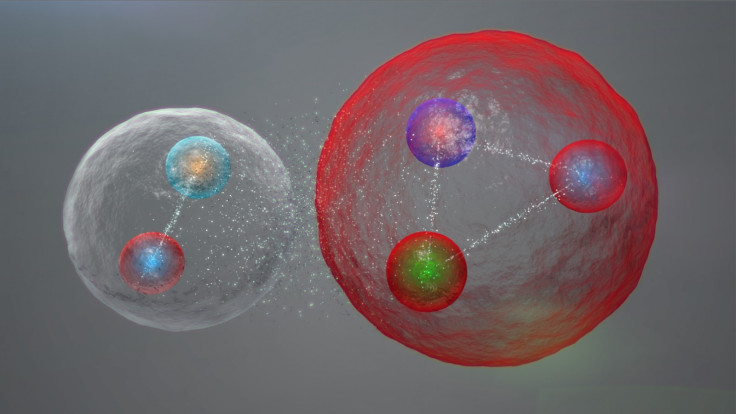Large Hadron Collider experiment discovers exotic pentaquark particles

Exotic pentaquark particles have been discovered through an experiment at Cern's Large Hadron Collider (LHC).
Researchers reported their findings in the journal Physical Review Letters. "The pentaquark is not just any new particle," said Large Hadron Collider beauty (LHCb) spokesperson Guy Wilkinson.
"It represents a way to aggregate quarks, namely the fundamental constituents of ordinary protons and neutrons, in a pattern that has never been observed before in over 50 years of experimental searches.
"Studying its properties may allow us to understand better how ordinary matter, the protons and neutrons from which we're all made, is constituted."
Scientists had thought the particle, made up of five quarks, could not have existed.
In 2003, Japanese scientists said they had discovered a pentaquark 1.5x heavier than a proton, and their results were replicated by at least 10 other laboratories, Nature Magazine reports. However, many other researchers found no such evidence and the finding was eventually dubbed a mirage.
The LHCb researchers were looking for pentaquark states by looking at the decay of a baryon known as Λb into three other particles. These were a J/ѱ (J-psi), a proton and a charged kaon.
Analysis showed how intermediate states were sometimes involved in their production, and these states have been named Pc(4450)+ and Pc(4380)+.
LHCb physicist Tomasz Skwarnicki, of Syracuse University, said: "Benefiting from the large data set provided by the LHC, and the excellent precision of our detector, we have examined all possibilities for these signals, and conclude that they can only be explained by pentaquark states. More precisely the states must be formed of two up quarks, one down quark, one charm quark and one anti-charm quark."
The LHCb scientists were able to find pentaquarks because the collider allowed them to look for them from many perspectives: "It's as if the previous searches were looking for silhouettes in the dark, whereas LHCb conducted the search with the lights on, and from all angles," a statement from Cern said.
Researchers now plan to look at how the quarks are bound together within the pentaquarks and more studies will be required to establish what else these particles can teach us.
© Copyright IBTimes 2025. All rights reserved.






















